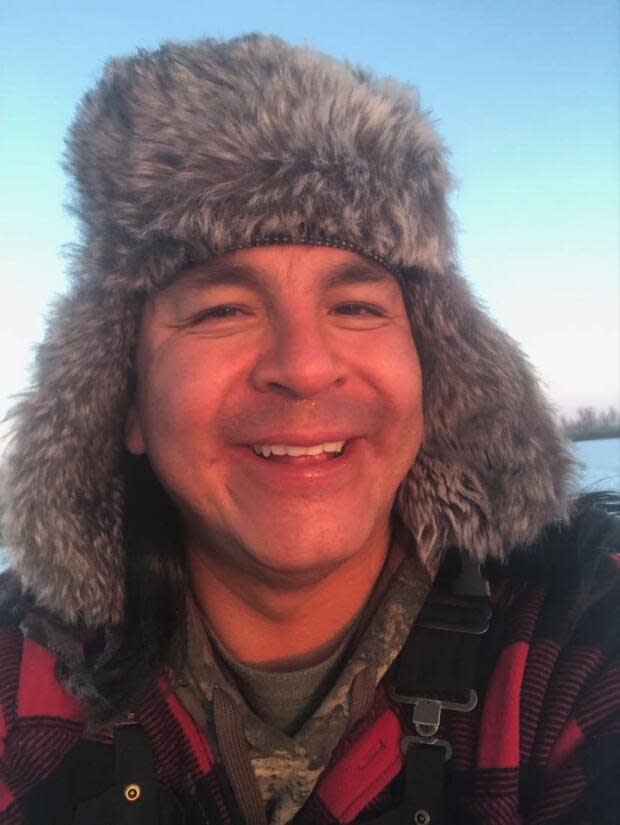Land of Living Stories revisits 4 memorable characters and their bonds with Saskatchewan places
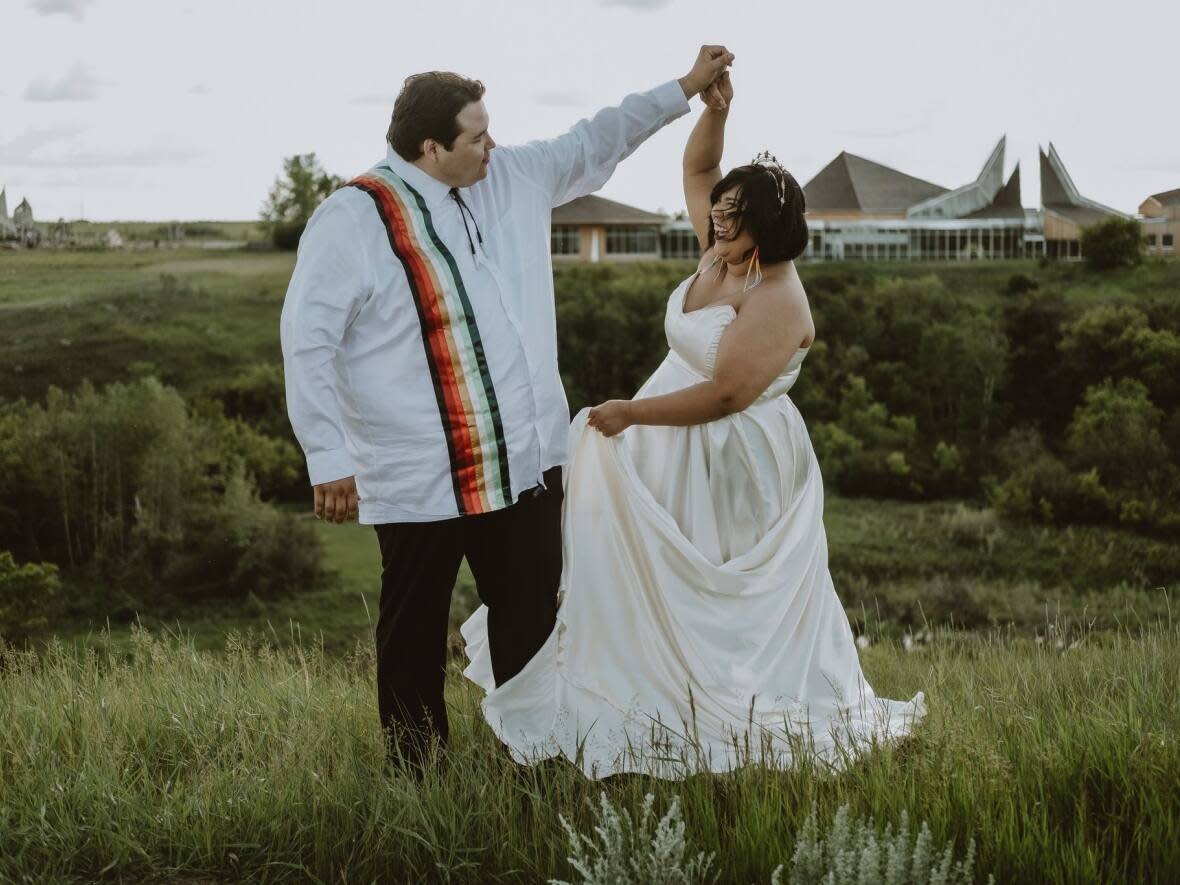
CBC's virtual road trip series Land of Living Stories explores the hidden gems across Saskatchewan. Reporter Laura Sciarpelletti once again hit the road in search of inspiring stories of community, heritage and good food.
For three years now, CBC Saskatchewan's Land of Living Stories series has brought you to locations across the province.
It started as a virtual tour during the early days of the pandemic in 2020. It has since evolved into more than just a suggestion map for a road trip. It's a series about the people who take the time to share their favourite part of this province, from its natural beauty, to the many cultures that live here, to the histories of individual communities.
Now CBC's virtual road trip is revisiting four of the series' most memorable characters to learn what has changed for them — and the Saskatchewan places they harbour deep connections to — since we last spoke.
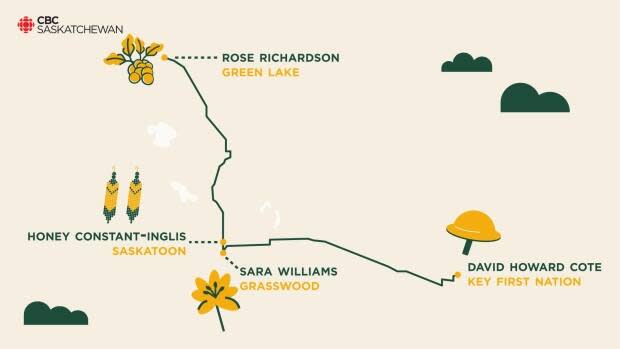
Honey Constant-Inglis
We last spoke to Saskatoon resident Honey Constant-Inglis in October 2021 for our edition on traditional foods. At that time, Constant-Inglis was just leaving her job at Wanuskewin Heritage Park and embarking on a solo entrepreneur journey making traditional beaded jewlery. Beading has since become a rewarding business for her.
"I'm just amazed with how much people are wearing my beadwork around the city. So when I see something that I created, I get like all fan-girly of the people who are wearing it," said Constant-Inglis.
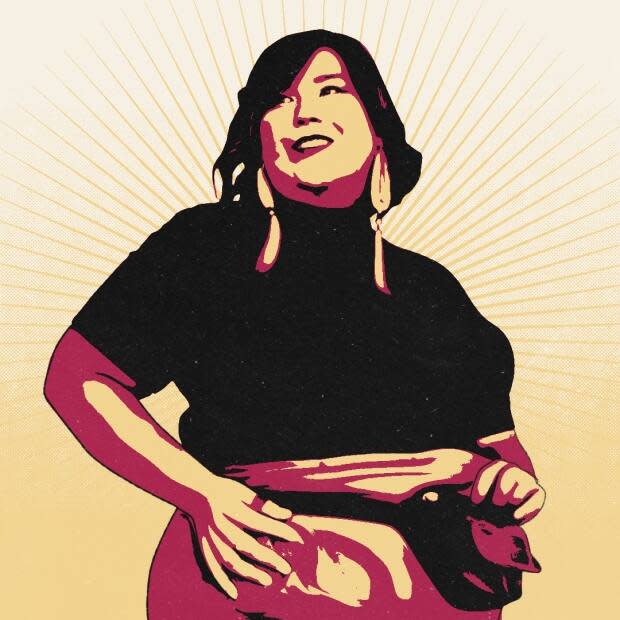
The Plains Cree woman does things with purpose, even when it came to naming her beading business, Honey Willow Creations. The 'willow' part comes from her connection to her family and the teachings of the red willow plant.
"I think the first time I learned about the red willow plant and how to harvest it was when I watched my grandpa and my Mushum weave red willow baskets when I was about 16 years old," said Constant-Inglis.
She said the traditional plant ties her to her family, trappers and her ancestors.
"I held onto those teachings and that red willow is an invisible stream that connects me to those people, even though I didn't have the privilege of meeting them."
Constant-Inglis said place and connection to land are deeply important to her.
"When I think of one place particularly that I love, it is my home reserve of Sturgeon Lake. I just have all of my best memories fishing … trying to make a hammock and falling. Sturgeon Lake is about 45 minutes north of Prince Albert and it's where the land, the prairie, meets the boreal forest. So I got to grow up with both worlds."

Constant-Inglis said having a connection to place is important because it can relieve stress and help you reset in a healthy way.
"I have all of my core memories of learning how to garden, seeing my first snake, learning how to snare rabbits. It was all done in Sturgeon Lake. So it's a huge part of who I am and who I became," she said.
Listen / CBC reporter and Land of Living Stories host Laura Sciarpelletti and writer and naturalist Trevor Herriot discuss a deep-rooted connection to land on CBC's Blue Sky:
Sara Williams
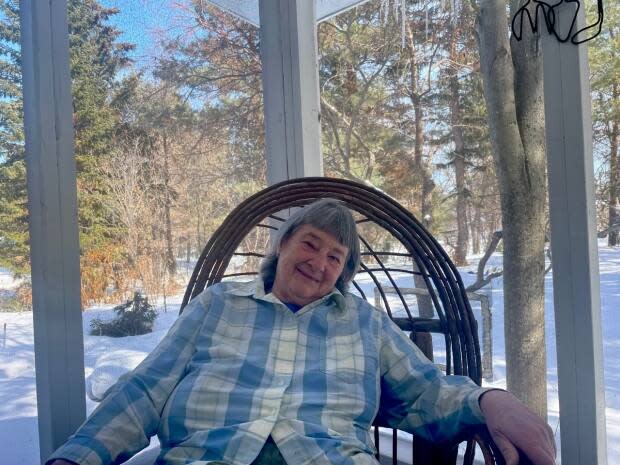
Horticulture specialist, gardening book author and retired University of Saskatchewan professor Sara Williams appeared in the May 2021 gardening edition of Land of Living Stories. Lately, she's been focusing on the little pleasures in life.
"I was feeling pretty down about a year ago. Several very close friends that I've known since I came to Saskatoon, 40-some years ago, had either passed away or were in the depths of dementia," said Williams.
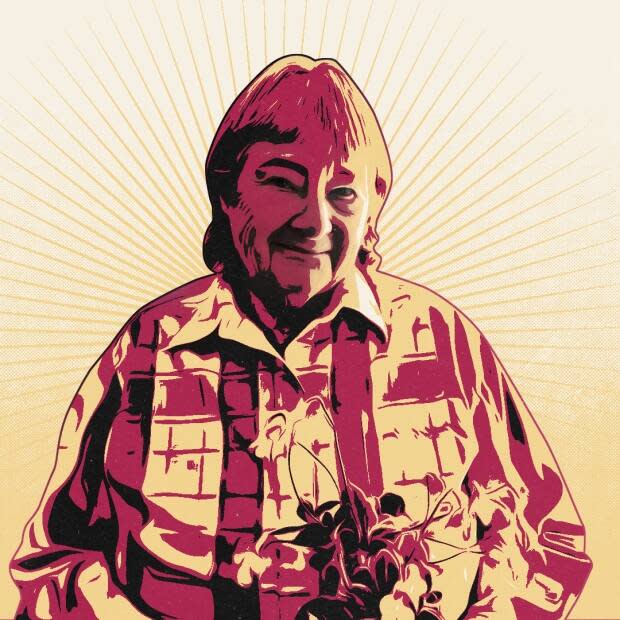
She said the war in Ukraine also weighed heavy on her.
"I wasn't a happy camper. And then a friend said, 'you know, you should think on the about the things that bring you joy.' And I thought about that, and I continue to think about that."
While Williams teaches some online special courses on plants, she spends a lot of time with the nature in and around her home.
"When I'm sitting in my sunroom, which faces south, I can see the beautiful foxy orange bark of my Scots pines, and they bring me so much joy," said Williams.
"The birds coming and going and a fox that happened to walk by one day and the deer nearby … all of those things I think are joyful."
When it comes to places in Saskatchewan she loves, Williams said she is fond of visiting Honeywood Heritage Nursery in Parkside, 58 kilometres east of Prince Albert. The spot was formerly cared for by her old friend, the late great lily flower master Bert Porter.
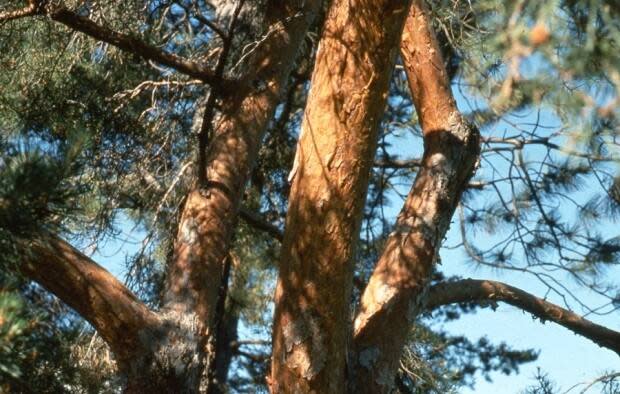
Rose Richardson
When Land of Living Stories spoke to Rose Richardson for the Green Lake edition in January 2021, the Métis elder spoke of her passion for traditional medicines, Métis culture and language.
Richardson, 81, has spent much of her life in the village of Green Lake in northwest Saskatchewan. The village, about 45 kilometres east of the city of Meadow Lake, is one of the province's oldest settlements — and it's predominantly Métis.
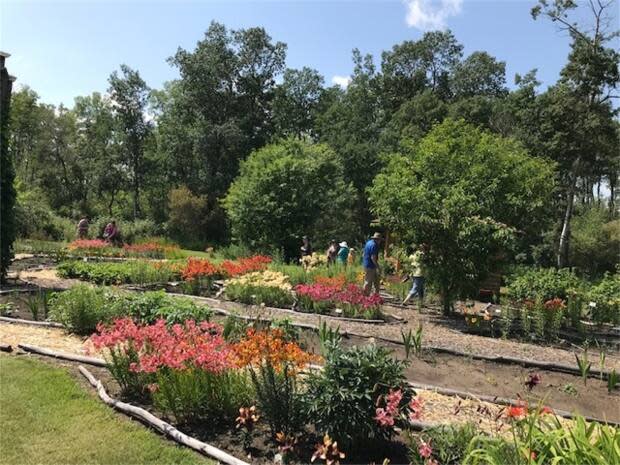
Prior to her current post as a high school teacher in Beauval, Sask., Richardson taught Michif to children in Meadow Lake.
"It's really surprising how young children can pick up a language quickly. In my days when I was younger, people were discriminated for speaking a different language. It was almost looked at like an evil language," said Richardson.
"But there's support that young people are getting now in terms of speaking their own language or learning how to speak the language, and they're being encouraged to do so."
Meanwhile, even through she is in her 80s, Richardson has no plans to slow down.
"Generally society has decided for you when you should retire, what age you should retire. Because they feel that old people can't think, they can't walk, they can't understand. And I'm saying that your brain still keeps functioning," she said.
"I believe it's the colonial system that turns around and makes those decisions for people in terms of when they have to retire, when they have to quit working. But I believe that in this life you have a certain amount of work to do and life is not easy, so you do the best you can."
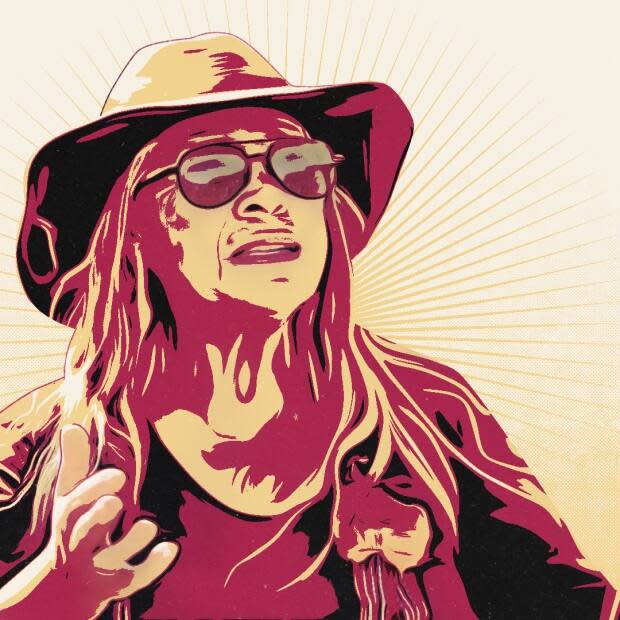
It takes Richardson an hour to drive to Beauval from Green Lake to teach. It just so happens that that northern route along Highway 155 is home to Richardson's very favourite Saskatchewan spot.
"That place I love to visit is where the blueberries grow," she said.
"Every day on my way to work I end up praying for all the people that are having hard time. And I stop in this little forest area that I can drive into and say, 'Good morning, little forest. I'll go walking through your forest today.'"
David Howard Cote
CBC last spoke to David Howard Cote, a Saulteaux member of the Key First Nation, in the Norquay and region edition of Land of Living Stories in August 2020.
The Key First Nation, located 20 kilometres from Norquay, is deeply important to Cote.
"This is where the heart is. Right here on the Key First Nation," said Cote.
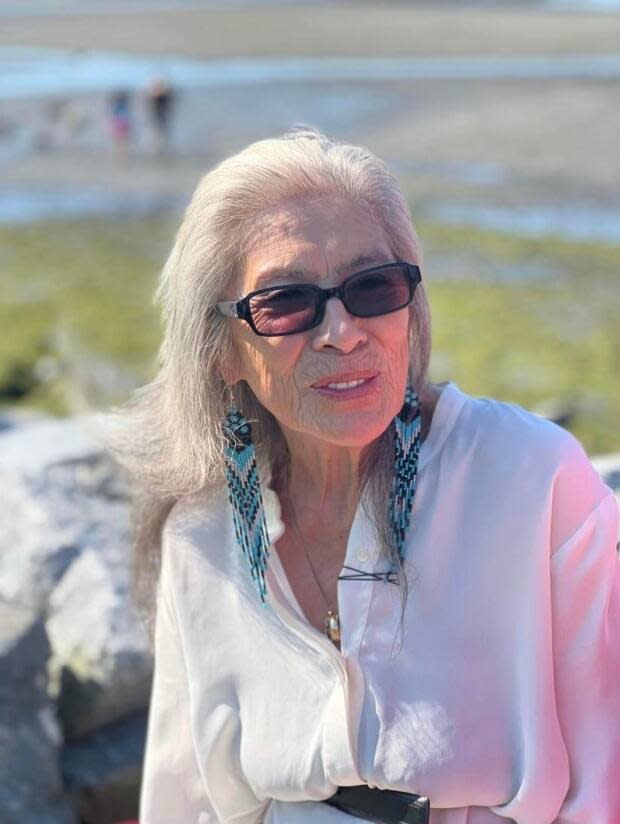
These days Cote is focused on advocating for the people of that land. He was a special guest of MLA Betty Nippi-Albright at the legislature in March when the government voted unanimously to pass the Saskatchewan First Act.
Many First Nations people, including Cote, say the act ignores their rights and history, and believe it could infringe on access to traditional hunting and fishing practices.
Cote said he was saddened by the passing of the Saskatchewan First Act. It has made him contemplate what his ancestors gave up to try to achieve equality in Canada, including fighting in the First and Second World Wars.
"We didn't have to go fighting those wars. But when Canada was calling for arms a lot of our men here suited up," he said.
"These men had it in their minds that if they go fight for their country they'll be treated as equals, and it wasn't so."
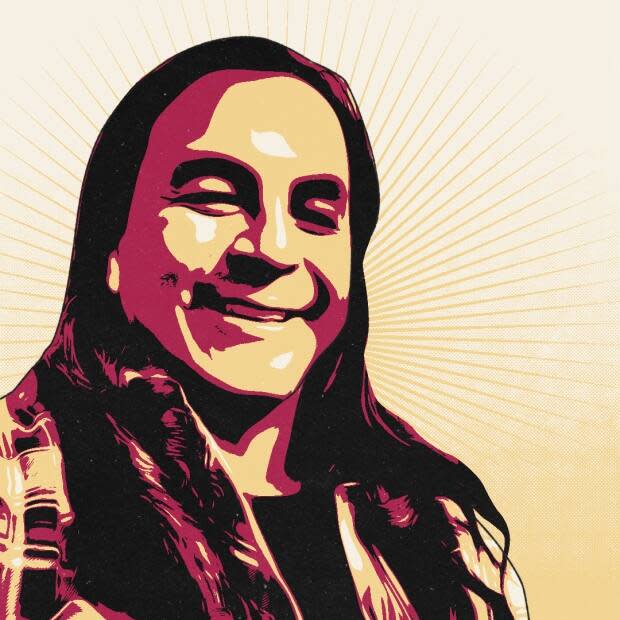
These things are on Cote's mind as he visits his favourite places in Saskatchewan, like Brockelbank Hill near the province's Porcupine Hills in the far east side of the province.
"When I go travel on that road, I'm just imagining that my ancestors here at one time had walked through these forests. They had probably hunted along and gathered along these lakes."
Cote said this feeling is called 'blood memory.'
"All that blood of my ancestors runs through me, but also their memories run through as well."
